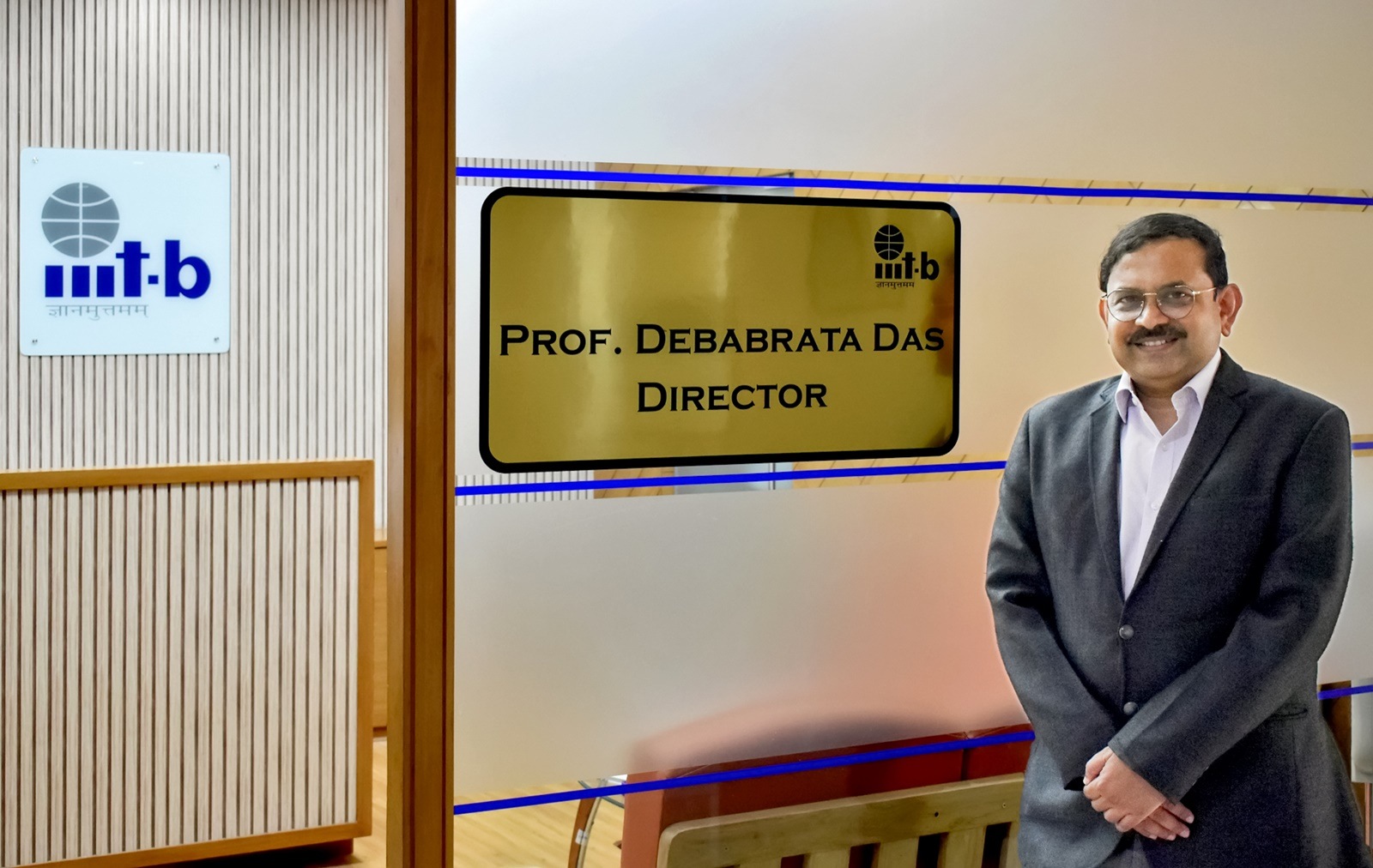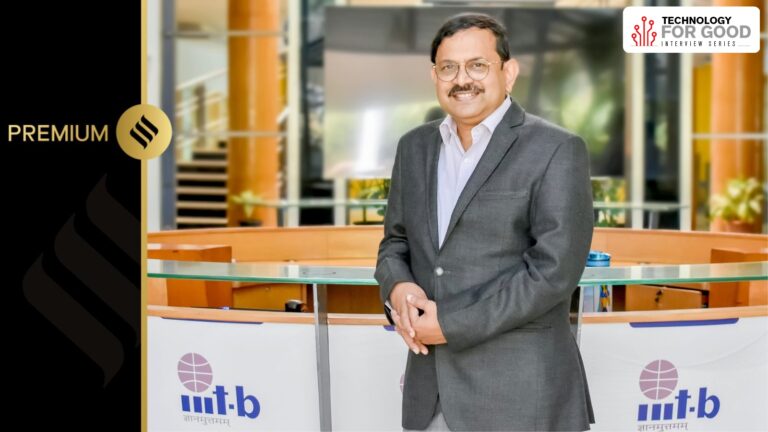Dr. Debabrata Das is the Director of International Institute of Information Technology, Bangalore (IIITB), considered a premier research university. He is also the Project Officer for the National Mission on Multidisciplinary Cyber-Physical Systems in the field of Advanced Communication Systems, DST, Government of India.
Before joining IIITB in 2002, Das worked at IIT Kharagpur and Kirana Networks in New Jersey, USA.
Das’ research interests include IoT and wireless access network technologies. He has over 200 peer-reviewed papers published in various journals, 5 patents both in the US and India, and is also the Chairman of IEEE India Council 2023-2024.

Das spoke to indianexpress.com about the various innovations that have come out of his research programs, including building 5G advanced base stations, digital identity platforms, and robotics, and the products that have had a major impact on governance. Edited excerpt:
Venkatesh Kanaiah: Can you tell us about some of the socially impactful innovations that have come out of your various research programs?
Debabrata Das: We work in many cutting-edge deep technology areas. They serve as hubs for digital public infrastructure, artificial intelligence and deep technology themes, image and video processing to monitor human behavior, data analysis for large-scale government programs in support of public policy, and bases for 5G. This ranges from research on building stations to building backends. For large government psychiatric telemedicine programs like Tele MANAS.

We have built a product called Margadarshi, a customized learning platform that helps people in rural India prepare for UPSC interviews. The Karnataka government has already started distributing this product to the aspirants and has received very good response. Construct questions based on the user’s abilities and previously given answers. This is the first phase of the product. The second phase involves studying more behavioral aspects, tracking facial expressions and body language and providing hints about them. This is currently in a very early stage.
We have a product called Datalake that is unique in its ability to process large amounts of government data on a variety of projects. For example, if you have data about the beneficiaries of a particular government program, algorithms can match the beneficiary data with the project’s policy prescriptions to see whether policy goals are being met and whether there is room for improvement. It can also predict how the beneficiary structure can be adjusted to align with the policy and help the population. Technology is the only way to analyze large amounts of data in India, and numerous government programs need to be analyzed and fine-tuned to reach them more effectively. Datalake is a unique product and the Government of India is our partner.

In the communications field, there are only four overseas companies building base stations for 5G, and we have no choice but to buy from them. . These are very expensive and we are part of a group of research institutions working on building base stations for 5G. It’s quite a deep tech challenge. If we can solve this problem, the cost will be reduced by about one-fifth, and it will be completely domestically produced and highly safe. IIIT Bangalore is also collaborating with other IITs to build standards for reconfigurable intelligent surfaces for 6G. This promises to improve communication across the spectrum.
Another interesting project of ours is mental health research. Tele MANAS is a telemedicine initiative and we will provide the database design, applications and other technical backends while his NIMHANS in Bangalore will provide the domain knowledge. Mental health remains a taboo in India, and with this telemedicine service, you will be connected to the nearest telemedicine hospital and doctors participating in the network. Over the past 12 months, his network has received nearly 700,000 mental health-related calls and we are delighted to be part of this effort.
Venkatesh Kannaiah: Can you tell us about MOSIP and MINRO research centers and the innovations that are coming out of them?
Debabrata Das: The Modular Open Source Identity Platform (MOSIP) was founded in 2018 to address the many complex challenges of implementing basic identity systems. It is the largest open source platform or product from India that is deployed across the globe. Approximately 18 countries have registered so far. MOSIP provides modular, open-source technology for countries to build and own their national ID systems. It would be like building Aadhaar for the international community and the Global South and making it available as open source. The Global South desperately needs such technology to be open source, without the hassle of proprietary lock-in, minimize vendor issues, and improve interoperability. They also realize that it is a technology that helps them with their sovereignty and independence.
Eighty countries around the world have attempted to create such identity systems, but have failed. There are many issues for such technology to work, and issues of scalability, openness, and the technology stack itself are complex. We are certainly 10 years ahead in digital identity, and it shows in our products and applications. Many developed countries are also beginning to take an interest in this technology. If this becomes widespread across the world, it will definitely be useful for system integrators and biometric companies in India.

Funded by the Government of Karnataka, the Machine Intelligence and Robotics Center (MINRO) conducts research in areas related to machine intelligence, artificial intelligence systems, data analytics, data science, pattern recognition, human-machine interfaces, and robotic industrial products. We will implement it. And automation. It will address real-world issues of governance and society apart from manufacturing, transportation and livelihood support. Some of the interesting problems we are working on include intermodal transportation, which includes traffic analysis of road conditions in India, processing traffic data, and using the data to make recommendations such as where metros should be placed and where bus stops should be placed. there is.
Venkatesh Kannaiah: Can you tell us about a student startup that has made a huge social impact?
Debabrata Das: Vision Empower is one of the influential startups born out of IIITB. Vidhya is a visually impaired student who wanted to pursue a master’s degree in digital society at IIITB. She was also the first visually impaired student and topper of her batch to study Mathematics in the Bachelor of Computer Applications course at Christ University, Bangalore. Vision Empower Trust is working to print books in Braille on tablets and other devices at almost zero cost.
Venkatesh Kanaiah: Can you tell us about one or two initiatives that you’re working on that you think are very long-stakes, but that, if realized, would have a big social impact?
Debabrata Das: We have built a new technology solution for Open Radio Access Network (ORAN) base stations that provides fast and reliable connectivity even in remote locations.

Our COMET technology innovation hub builds mobile base stations for 5G and beyond using vendor-neutral RAN, 5G/6G core network technologies, reconfigurable intelligent surfaces for radio, UAV/drone communications, and radar. In this way, we are working on next-generation wireless communications. Drone detection and routing.
This ORAN base station solution is designed and under development to create an energy-efficient wireless communication technology for 5G and 5G-Advanced wireless networks.
A critical component of next-generation communications infrastructure, ORAN base station solutions make delivering the Internet in remote locations easier, more efficient, and more economical. This will be operational within six months and will be a game changer.
© Indian Express Private Limited
Originally uploaded to: March 23, 2024, 17:00 IST


